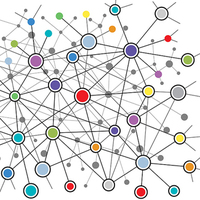Silico Modeling and Predictive Analytics for Healthcare Delivery Innovation
A Case-Study of Diabetes Progression with Agent-Based Models featuring Dr. Arjun Shankar, Director of ORNL’s Compute and Data Environment for Science (CADES).
Presenter: Dr. Mallikarjun (Arjun) Shankar, Director of ORNL’s Compute and Data Environment for Science (CADES).
Title: In Silico Modeling and Predictive Analytics for Healthcare Delivery Innovation: A Case-Study of Diabetes Progression with Agent-Based Models
Abstract:
A fundamental shift in national healthcare from fee-for-service to paying for performance and value is underway. As new rules and policies are implemented in a complex healthcare delivery environment, there are risks and consequences that we need to explore in a principled manner.In silico predictive simulation and analysis approaches allow exploration of possible responses of individuals and the overall system to individual behaviors, incentives, and risk management innovations. We discuss our construction of a large-scale high-fidelity model for various entities in a healthcare system. We then narrow our focus to a case study in which we use an agent-based simulation model to emulate disease states and behaviors critical to the progression of Type 2 Diabetes. We build our model to reproduce certain essential findings that were previously reported for a systems dynamics model of diabetes progression. We translate critical elements of this system dynamics model which mimics diabetes progression over an aggregated U.S. population. We track disease states and estimate impacts of elderliness factor, obesity factor, and health-related behavioral parameters. Although our agent-based simulation model contains over thirty adjustable parameters, we observe that our models are considerably less complex than the system dynamics model which requires several time series inputs to make its predictions. Three elaborations of our baseline model provide increasingly improved fits to the prior findings. The models also suggest that behavioral factors appear to contribute more than the elderliness factor. Our results illustrate a promising approach to translating complex system dynamics models into agent-based model alternatives that are both conceptually simple and expressive enough to capture the main effects of local interactions.
Speaker: Dr.Shankar’s interdisciplinary research focuses on bridging the fields of computer science and the basic and applied sciences. He is the Director of ORNL’s Compute and Data Environment for Science (CADES) institute which hosts joint scientific initiatives between the computing directorate and ORNL’s science focus areas including environmental and biological sciences, materials and neutron science, nuclear science, and the physical sciences. Arjun received his Ph.D. in computer science from the University of Illinois, Urbana-Champaign, following which he worked in industry designing and building next-generation data management infrastructures. His research in the national laboratory setting has involved designing national scale sensor networking systems, energy infrastructure monitoring and control frameworks, and mechanisms to perform integrated data analytics and modeling and simulation. His sponsored R&D project outputs have several active users in the federal government as well as in the commercial sector. His research has resulted in over fifty peer-reviewed publications and he is a member of the ACM and the IEEE Computer Society.
Funding for DINR's speaker series for the current academic year has been made possible by a grant from Dartmouth's Neukom Institute and by a generous gift in support of the Quantitative Social Sciences at Dartmouth.
